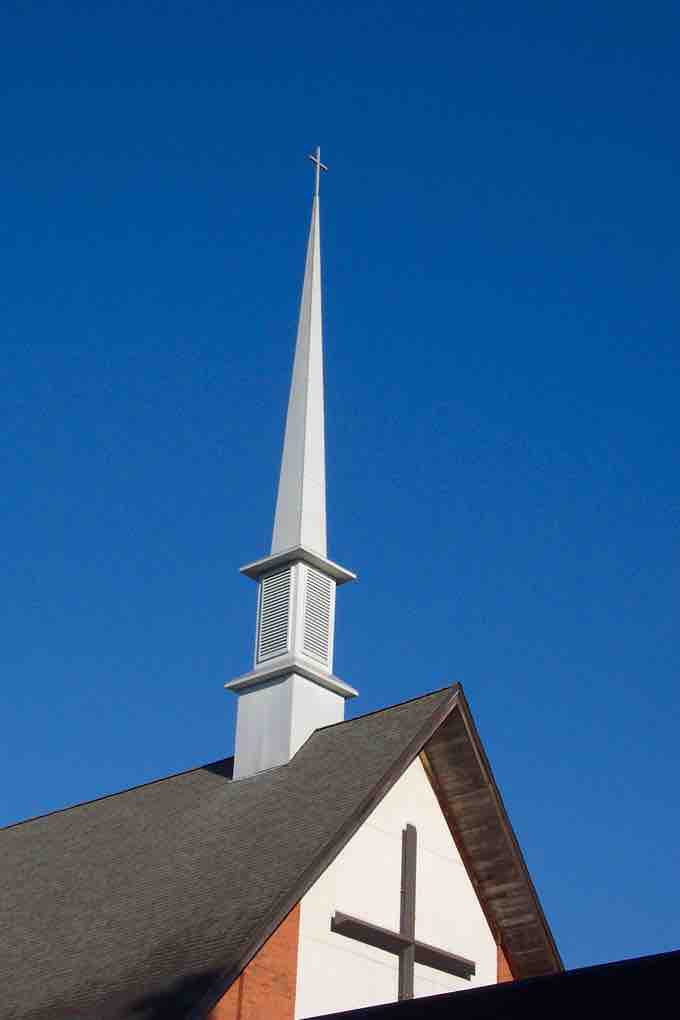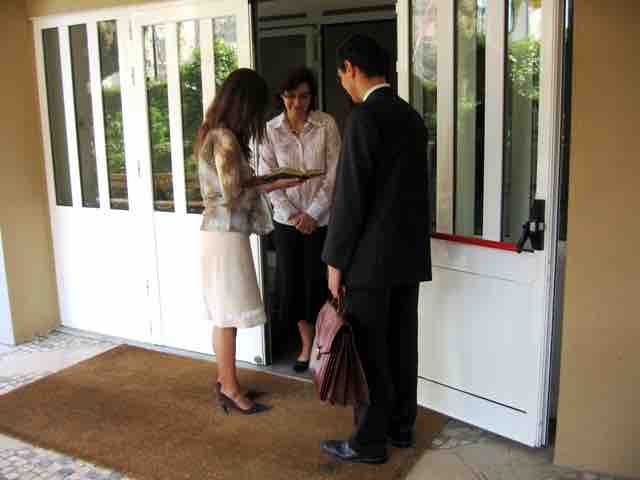The Free Exercise Clause
The Free Exercise Clause is the accompanying clause with the Establishment Clause of the First Amendment to the United States Constitution. The Establishment Clause and the Free Exercise Clause together read:" Congress shall make no law respecting an establishment of religion, or prohibiting the free exercise thereof..." Thus, the Establishment Clause prevents the US from establishing or advocating for a specific religion, while the Free Exercise clause is intended to ensure the rights of Americans to practice their religions without state intervention . The Supreme Court has consistently held, however, that the right to free exercise of religion is not absolute, and that it is acceptable for the government to limit free exercise in some cases.

Church and Political Socialization
Participation in organized religion or church attendance can be another important source of political socialization, as churches often teach certain political values.
Interpreting the Free Exercise Clause
The history of the Supreme Court's interpretation of the Free Exercise Clause follows a broad arc, beginning with approximately 100 years of little attention. Then it took on a relatively narrow view of the governmental restrictions required under the clause. The 1960s saw it grow into a much broader view and later receding again.
In 1878, the Supreme Court was first called to interpret the extent of the Free Exercise Clause in Reynolds v. United States, as related to the prosecution of polygamy under federal law. The Supreme Court upheld Reynolds' conviction for bigamy, deciding that to do otherwise would provide constitutional protection for a gamut of religious beliefs, including those as extreme as human sacrifice. This case, which also revived Thomas Jefferson's statement regarding the "wall of separation" between church and state, introduced the position that although religious exercise is generally protected under the First Amendment, this does not prevent the government from passing neutral laws that incidentally impact certain religious practices.
This interpretation of the Free Exercise Clause continued into the 1960s. With the ascendancy of the Warren Court under Chief Justice Earl Warren, a new standard of "strict scrutiny" in various areas of civil rights law was applied. The Court established many requirements that had to be met for any restrictions of religious freedom. For example, in Sherbert v. Verner (1963), the Supreme Court required states to meet the "strict scrutiny" standard when refusing to accommodate religiously motivated conduct. This meant that a government needed to have a "compelling interest" regarding such a refusal. The case involved Adele Sherbert, who was denied unemployment benefits by South Carolina because she refused to work on Saturdays, something forbidden by her Seventh-day Adventist faith.
This view of the Free Exercise Clause would begin to narrow again in the 1980s, culminating in the 1990 case of Employment Division v. Smith. Examining a state prohibition on the use of peyote, the Supreme Court upheld the law despite the drug's use as part of a religious ritual . In 1993, the Congress passed the Religious Freedom Restoration Act (RFRA), which sought to restore the compelling interest requirement applied in Sherbert v. Yoder. In another case in 1997, the Court struck down the provisions of the Act on the grounds that, while the Congress could enforce the Supreme Court's interpretation of a constitutional right, the Congress could not impose its own interpretation on states and localities.

Peyote Cactus
Native Americans used peyote (a cactus that has psychedelic effects when ingested) in spiritual rituals. In 1990, the Supreme Court banned the use of this drug, demonstrating a move away from the requirement to show "compelling interest" before limiting religious freedom.
Jehovah's Witnesses Cases
During the twentieth century, many major cases involving the Free Exercise Clause were related to Jehovah's Witnesses . Many communities directed laws against the Witnesses and their preaching work. From 1938 to 1955, the organization was involved in over forty cases before the Supreme Court, winning a majority of them. For example, the first important victory came in 1938 with Lovell v. City of Griffin. The Supreme Court held that cities could not require permits for the distribution of pamphlets.

Jehovah's Witnesses
The specific beliefs and practices (such as a belief in door-to-door proselytizing, depicted here) of the Jehovah's Witnesses has meant that Jehovah's Witnesses' litigation has played a key role in defining the Free Exercise Clause of the First Amendment.